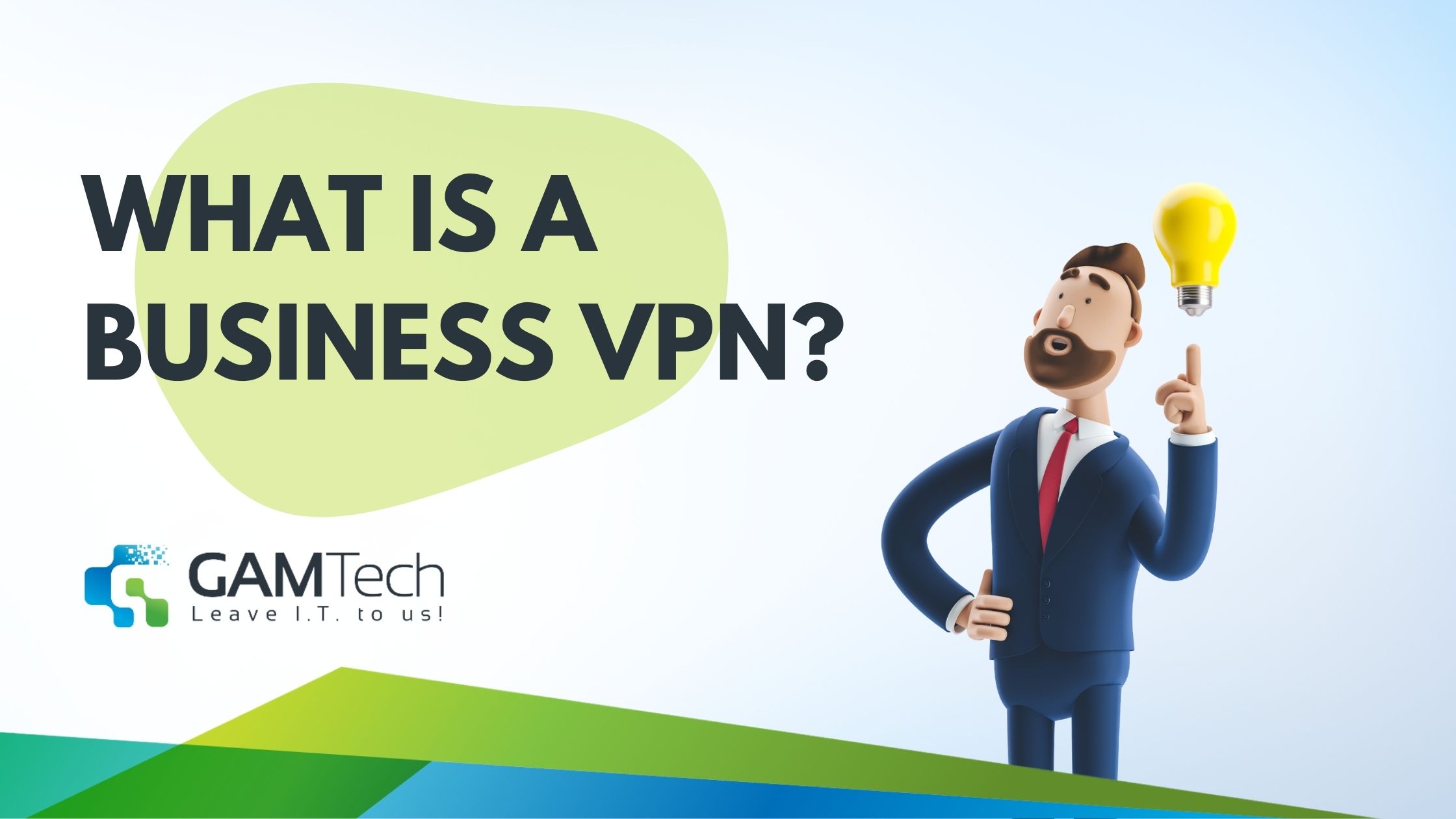Building a Strong Business Continuity Plan: 5 Essential Components
Simply put, a business continuity plan is a set of instructions, protocols, and procedures meant to protect your small to mid-sized business (SMB) in...
6 min read
 Adrian Ghira
:
Updated on September 21, 2025
Adrian Ghira
:
Updated on September 21, 2025

Small businesses are increasingly becoming targets of cybercrime. Hackers see them as an easy target because they often don't have the same level of security measures in place as larger businesses.
In order to protect your business from cybercrime, you need to take steps to secure your network and data.
We have put together the definitive guide on how to secure a business network, right here.
Small business owners need to be aware of the risks associated with cybercrime in order to take the necessary steps to protect themselves. Network Security is an issue that is top of mind for most businesses.
The most common network security threats targeting small businesses include ransomware, malware, and phishing attacks.
If you understand the risks that come with using the internet, you can be more proactive in protecting your business.
If you're running a small business, it's important to take steps to secure your network from cybercrime and other online threats.
One of the best ways to do this is by installing security software on all of your devices.
Security software can help protect your data from hackers and other malicious software.
Some popular options include Norton AntiVirus, McAfee AntiVirus, and Kaspersky Anti-Virus - these are all typically suited for personal or family use, other than Kaspersky.
You can also look into options from Avast, Bitdefender, or Cisco Umbrella.
Be sure to read reviews and compare features before making a decision.
Once you've installed security software, be sure to keep it up-to-date. Hackers are constantly developing new ways to exploit security vulnerabilities, so it's important to make sure your software is up-to-date.
One of the best ways to protect your network from cybercrime is by creating strong passwords.
A strong password is one that is difficult to guess and is not easily cracked.
There are a few things you can do to create strong passwords:
If you're having trouble coming up with strong passwords, you can use a password generator like LastPass or 1Password.
These tools will create strong passwords for you, and also allow you to store your passwords securely in a password manager program so that you don't have to remember them all yourself.
In addition to creating strong passwords, it's important to take other steps to protect your network from cybercrime. This might include using 2-Factor or Multi-Factor Authentication on your accounts, encrypting your data, and creating backups of your important files.
Firewalls are an important tool for managing access to your network. A firewall is a piece of software or hardware that helps protect your computer or network from unauthorized access. It does this by blocking incoming and outgoing traffic based on predetermined rules.
Popular firewall options include Cisco ASA, Meraki, SonicWall, and WatchGuard.
Just like with Antivirus, be sure to read reviews and compare features before making a decision.
When configuring your firewall, it's important to strike a balance between security and convenience.
If you're too restrictive with your firewall rules, you may run into issues with connectivity, functionality, or speed.
However, if you're not restrictive enough, your network may be vulnerable to attacks.
It's important to find the right balance for your business and take steps to secure your network without making it overly difficult for users to access the necessary resources.
One of the best ways to protect your data from cybercrime is by backing it up.
If your data is backed up, it will be much more difficult for a hacker to steal it or destroy it.
There are a number of different ways to back up your data - popular options include online cloud backups, external hard drives, and network drives.
You can either use a dedicated backup program or set up automated backups using your operating system's built-in tools.
No matter which option you choose, backups are a must-have for any business. This will help ensure that your data is always safe, even if you experience a cyberattack or other data loss event.
With regular backups, you can always restore your data to its previous state and get back to business as usual. This is an absolutely crucial part of a disaster recovery plan - the best way to go further in protecting your business.
One of the best ways to protect your computer or network from online threats is by keeping your software up-to-date. It's important to note that this is not simply about the antivirus updates we mentioned before.
Software companies often release updates and patches to fix security vulnerabilities and other issues. If you don't install these updates, your computer or network may be vulnerable to attacks.
Installing regular updates can be a bit of a hassle, but there are a few things you can do to make it easier.
First, you can set your computer or network to install updates automatically.
This way, you'll always be running the latest version of your software without having to remember to do it yourself.
Second, you can use a patch management system to automate the process of installing updates.
A patch management system will scan your computer or network for vulnerable software and then install the necessary updates.
Third, you can hire a company like a Managed IT Service Provider (MSP) to ensure your updates are completed regularly - plus, almost all MSP include software updates and management as a part of their services!
If you want to learn more about Managed IT Services - you'll want to read our Ultimate Guide To Managed IT Services.

Many cyberattacks are successful because employees don't know how to identify a phishing attack or how to protect their passwords.
Educating your employees can help them stay safe online and protect your business' data.
For example, you could host occasional training sessions to teach your employees about the most common cyber threats out there and how to avoid them.
You could also send periodic emails with articles on different online threats and how to avoid them, or even include this information in your company updates.
And don't forget about using posters, flyers, and other visual aids - these can be great ways to grab employees' attention and help them remember key tips.
Not sure where to start? We put together a couple of guides to help you get started:
One of the best ways to protect your business from cybercrime is by restricting access to sensitive data.
If you don't want employees to have access to certain files or folders, you can restrict their access by password protecting them or placing them in a secure location. This way, employees can't access the files or folders unless they have the correct password.
If you want to further restrict access, you can also use data classification.
Data classification is a process of labeling data based on its level of sensitivity.
For example, you could label certain files as "confidential" or "sensitive."
Then, you could set up your security system so that only employees with the appropriate clearance can access these files.

Encryption is the process of transforming readable data into an unreadable format. This way, only authorized users can access the data.
There are several different types of encryption algorithms, and each one has its own set of strengths and weaknesses.
For example, asymmetric algorithms use two keys: a public key and a private key.
These keys are mathematically linked, so that data can be decrypted only with the private key. This type of encryption is ideal for highly sensitive information, such as financial or personal data.
However, asymmetric algorithms can be slower and more resource-intensive than other types of encryption.
Another type of encryption is a symmetric algorithm.
Symmetric algorithms use the same key to encrypt and decrypt data. This can make them faster and more efficient than asymmetric algorithms.
However, it also means that if the key is compromised, all of the encrypted data can be unlocked.
Whether you're using asymmetric or symmetric algorithms, be sure to keep your encryption keys and other sensitive data safe.
Small businesses are a prime target for cybercrime, as they often have less sophisticated security measures in place than larger organizations.
One of the best ways to protect your business network is to be vigilant and monitor it for any suspicious activity.
This includes monitoring your network traffic for signs of unauthorized access, scanning your systems for malware, and keeping your software updated.
Small businesses are the most common targets of cyber attacks, so it's important to be prepared.
This includes having a plan in place for how you will respond if your network is compromised. You should also have a backup of your data in case of a ransomware attack, and ensure that your employees are aware of the dangers of phishing attacks and other online scams.
If you feel like your business is not adequately protected against cybercrime, or if you have been the victim of an attack, it may be time to seek professional help.
There are many companies that offer cybersecurity services, and they can help you to secure your network and protect your data.

Small businesses are a prime target for cybercrime, as they often have less sophisticated security measures in place than larger organizations.
However, there are many things small businesses can do to protect their networks from online threats.
In this article, we have outlined several ways to secure your business data. These include using data classification, encryption, and monitoring your network for suspicious activity.
We have also included a comprehensive list of resources for small businesses looking to protect themselves from cybercrime.
GAM Tech offers a comprehensive network security assessment completely free of charge for businesses looking to strengthen their network security and protect their data from cybercrime!

Simply put, a business continuity plan is a set of instructions, protocols, and procedures meant to protect your small to mid-sized business (SMB) in...

Updated June 1, 2022 With cyber attacks becoming more frequent for small businesses, along with new privacy scandals from social media and and hacker...

Introduction The halfway point of the year is the perfect time for small and medium-sized businesses (SMBs) to evaluate their IT infrastructure. Just...